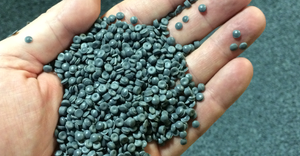ESWET's Comment on the Circular Economy Report by the EU Parliament
January 29, 2021

Brussels - ESWET welcomes the European Parliament's report on the EU Circular Economy Action Plan. In particular, the Parliament acknowledged resource efficiency's role to reduce dependency on primary raw materials, responsible for 45% of CO2 emissions generated in Europe.
The Parliament report called the EU Member States to strengthen their reuse and recycling efforts and move away from landfills. ESWET is pleased to see that the text highlighted the importance of providing Waste-to-Energy plants with the most advanced technologies to treat non-recyclable waste.
"The EU Parliament report rightly focused on achieving the EU waste targets to end landfilling in Europe and further reduce non-recyclable waste." Patrick Clerens, ESWET Secretary-General, said. "Following the waste hierarchy, modern and highly efficient waste-to-energy plants are essential to treat the residual waste that cannot be recycled, recovering energy and secondary raw materials."
Waste-to-Energy contributes to the efficiency of the EU waste management by treating the fraction of waste that cannot be recycled, thus preventing landfills. Today, we see several EU countries landfill more than half of the waste they generate. Simultaneously, we know that landfilled waste is a lost resource, a potential generator of methane emissions, and a source of pollution to air, soil, and water.
Efforts towards waste prevention should be a priority, but the need for non-recyclable waste treatment capacity cannot be overlooked. It would only perpetuate the unsustainable bailout options we see today, like massive shipments of waste outside Europe, which cause pollution and waste crime.
The European Parliament report correctly depicts Waste-to-Energy as a complementary tool to recycling for the safe treatment of non-recyclable waste and resource recovery. State-of-the-art waste-to-energy plants currently built in Europe are at the forefront for energy efficiency and low emissions. They secure resources in Europe and are an essential link for a sustainable EU waste management chain.
You May Also Like


